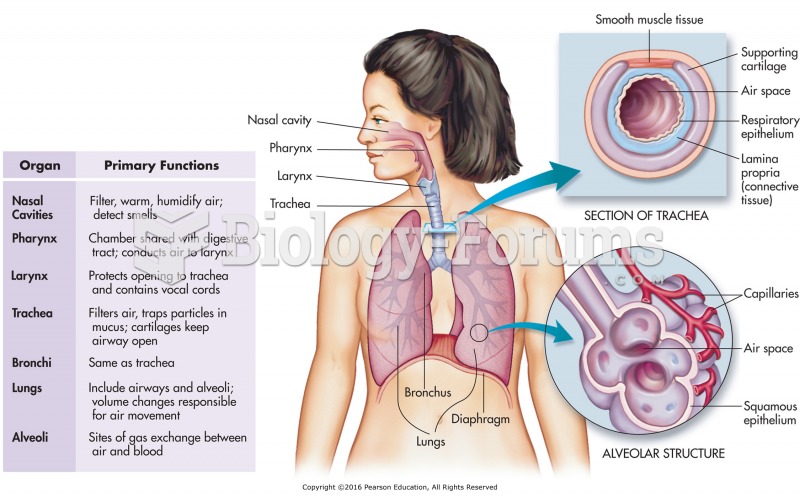|
|
|
In the ancient and medieval periods, dysentery killed about ? of all babies before they reach 12 months of age. The disease was transferred through contaminated drinking water, because there was no way to adequately dispose of sewage, which contaminated the water.
During the twentieth century, a variant of the metric system was used in Russia and France in which the base unit of mass was the tonne. Instead of kilograms, this system used millitonnes (mt).
Atropine, along with scopolamine and hyoscyamine, is found in the Datura stramonium plant, which gives hallucinogenic effects and is also known as locoweed.
As the western states of America were settled, pioneers often had to drink rancid water from ponds and other sources. This often resulted in chronic diarrhea, causing many cases of dehydration and death that could have been avoided if clean water had been available.
The first war in which wide-scale use of anesthetics occurred was the Civil War, and 80% of all wounds were in the extremities.
 Areas of Mediterranean shrubland in southern California periodically burn over large areas, destroyi
Areas of Mediterranean shrubland in southern California periodically burn over large areas, destroyi
 The lymphatic system. Lymphatic vessels, major lymph nodes, and lymphatic organs. The direction of l
The lymphatic system. Lymphatic vessels, major lymph nodes, and lymphatic organs. The direction of l





